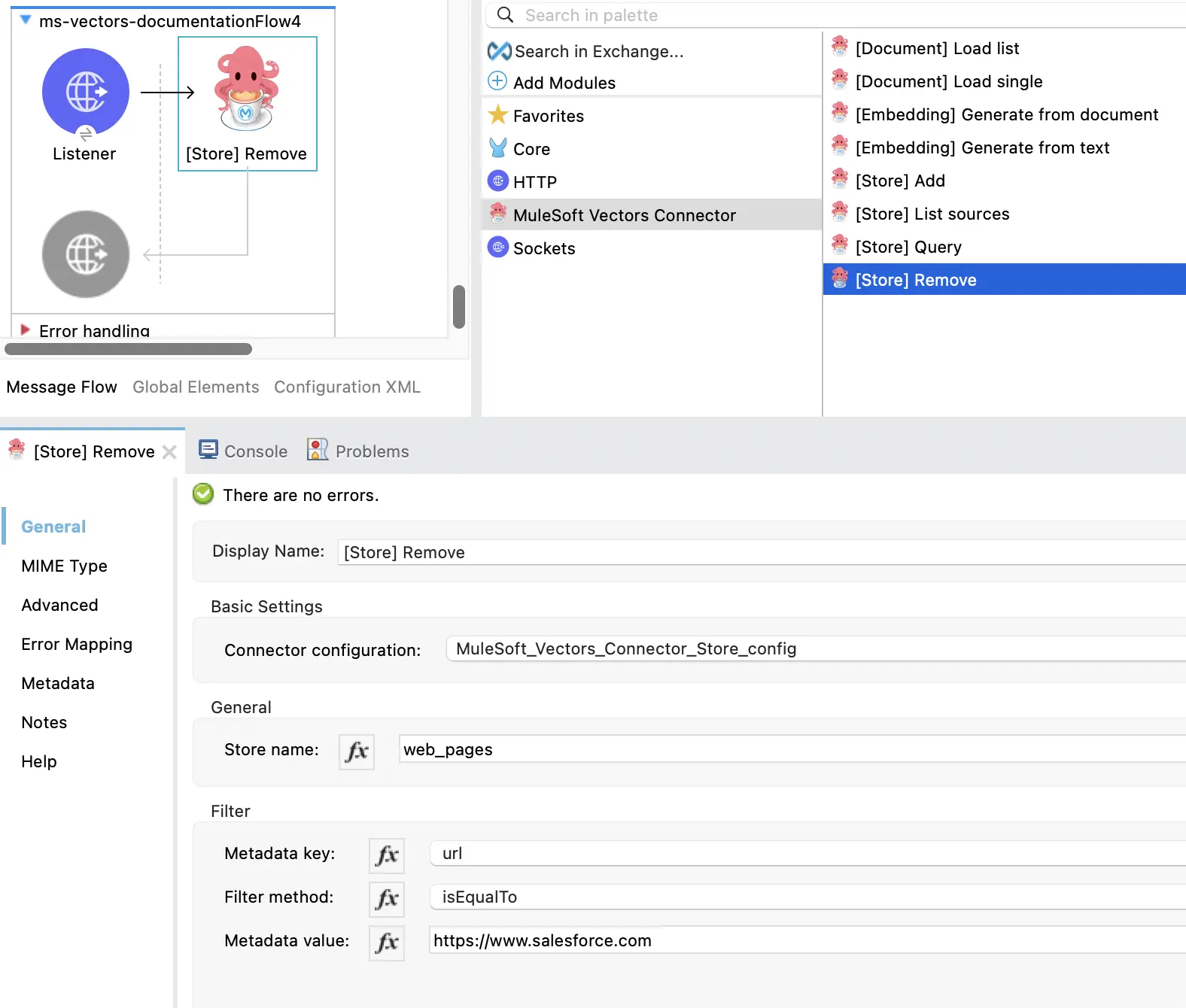Salesforce Mulesoft
MuleSoft Anypoint is an integration platform to connect applications, data, and devices across on-premises and cloud environments. It provides a unified platform to build, manage, and secure APIs and integrations, making digital transformation smoother and more scalable.
MAC Project is an open-source initiative to bring AI capabilities into the MuleSoft ecosystem. It provides connectors to add AI capabilities to an Anypoint project by integrating LLMs, vector databases including Qdrant.
Setup
To use Qdrant with Anypoint, you can install the Mulesoft Vectors connector. Paste the following Maven Dependency into your Mule application pom file.
<dependency>
<groupId>io.github.mulesoft-ai-chain-project</groupId>
<artifactId>mule4-vectors-connector</artifactId>
<version>0.3.0</version>
<classifier>mule-plugin</classifier>
</dependency>
The project will now rebuild with the connector. You also need to install the optional dependencies for the Qdrant connector.
<?xml version="1.0" encoding="UTF-8"?>
<project xmlns="..." >
...
<build>
<plugins>
...
<plugin>
<groupId>org.mule.tools.maven</groupId>
<artifactId>mule-maven-plugin</artifactId>
<version>4.3.0</version>
<extensions>true</extensions>
<configuration>
<additionalPluginDependencies>
<plugin>
<groupId>io.github.mulesoft-ai-chain-project</groupId>
<artifactId>mule4-vectors-connector</artifactId>
<additionalDependencies>
<!-- QDRANT CONNECTOR DEPENDENCY -->
<dependency>
<groupId>dev.langchain4j</groupId>
<artifactId>langchain4j-qdrant</artifactId>
<version>0.35.0</version>
</dependency>
<!-- QDRANT CONNECTOR DEPENDENCY -->
</additionalDependencies>
</plugin>
</additionalPluginDependencies>
</configuration>
</plugin>
</plugins>
</build>
...
</project>
Usage
The MuleSoft Vectors connector is shipped with 3 different categories of operations: Document, Embedding and Store. For each category a dedicated configuration must be defined.
The store configuration allows to pick-up the right vector store option among the available ones. When configuring the connection to a specific vector store it’s also possible to test it.
Go to the Global Elements in your MuleSoft project, and create a new configuration. In the Connector Configuration, you will find the MuleSoft Vectors Connector Store config.
Upon selecting Qdrant, you’ll be presented with the following parameters to set up the connection to a Qdrant instance.
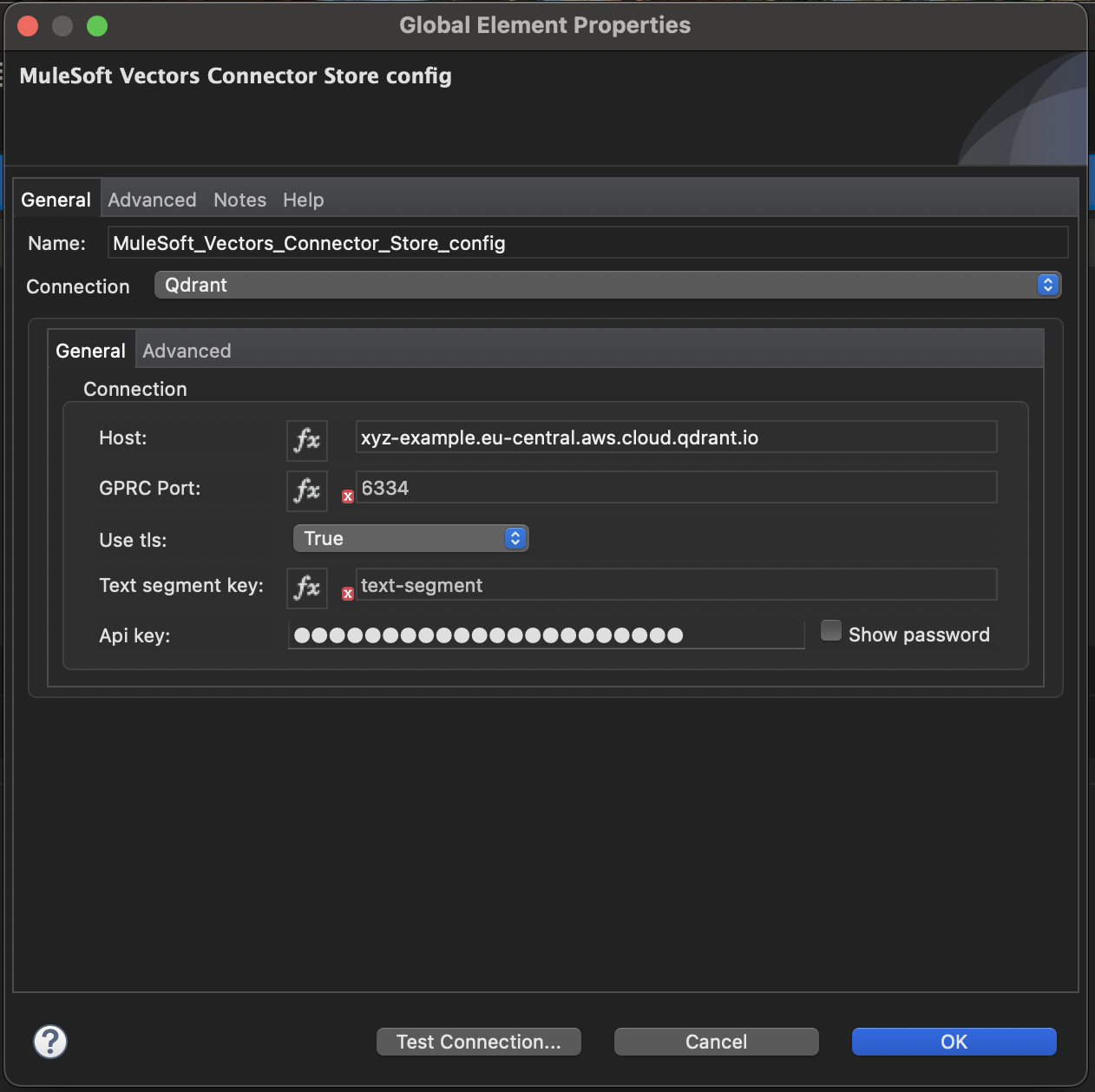
Once a connection is set up, you can now use the following Qdrant operations in your workflows.
Store Add
The Add operation adds a document or text to a collection.
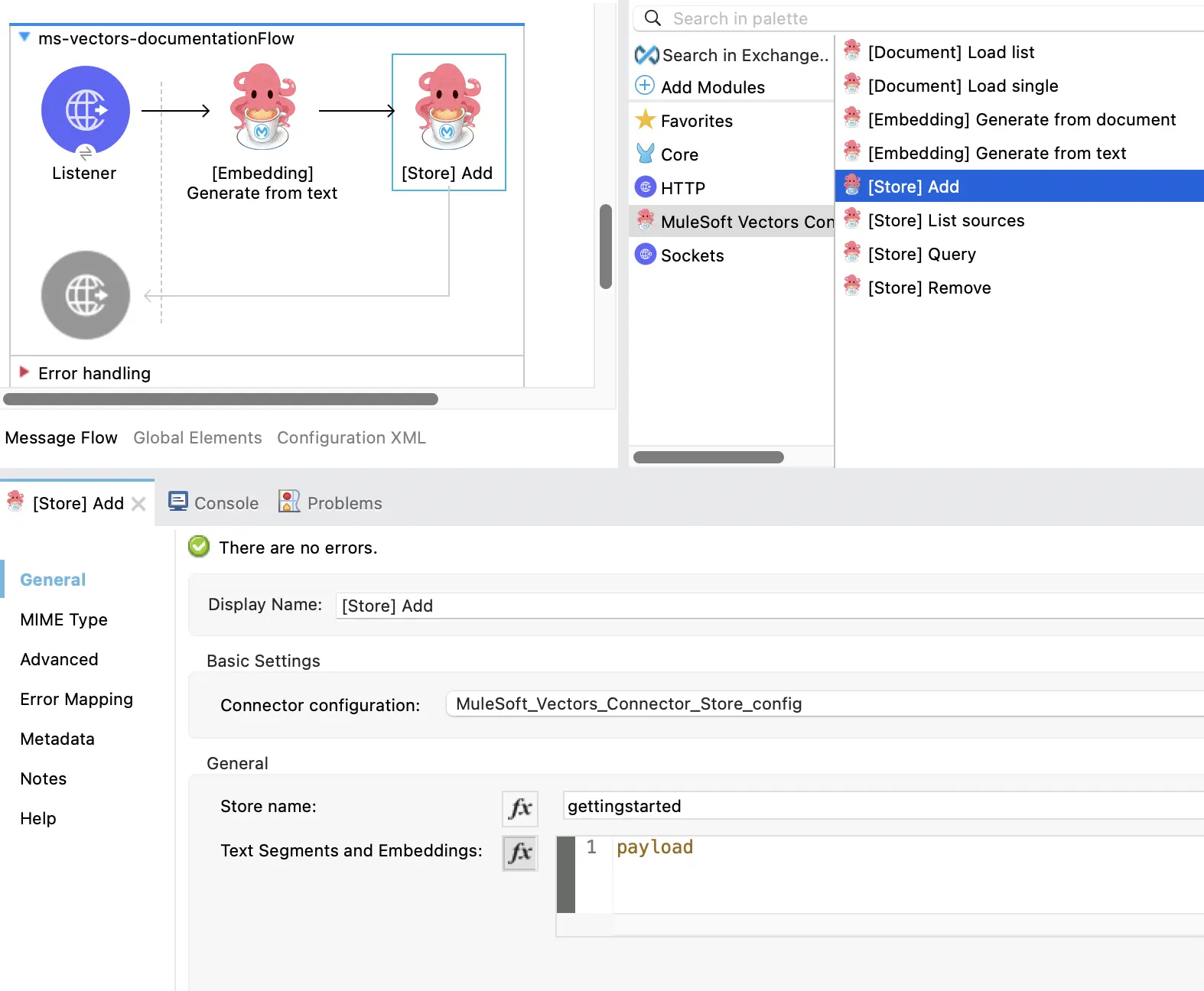
Store List
The List sources operation lists all entries in a collection.
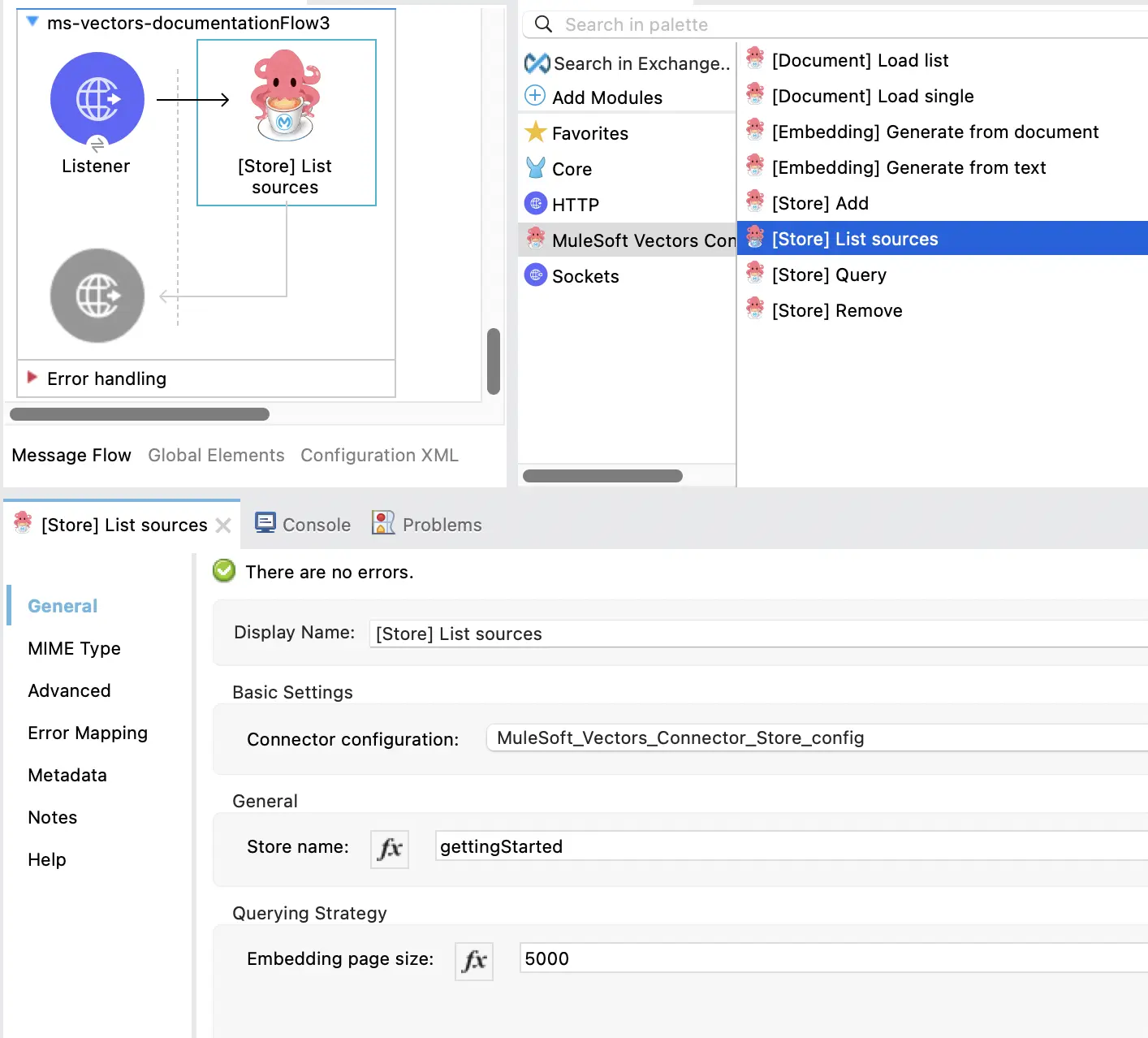
Store Query
The Query operation retrieves information from a collection based on a query a embedding and an optional filter.
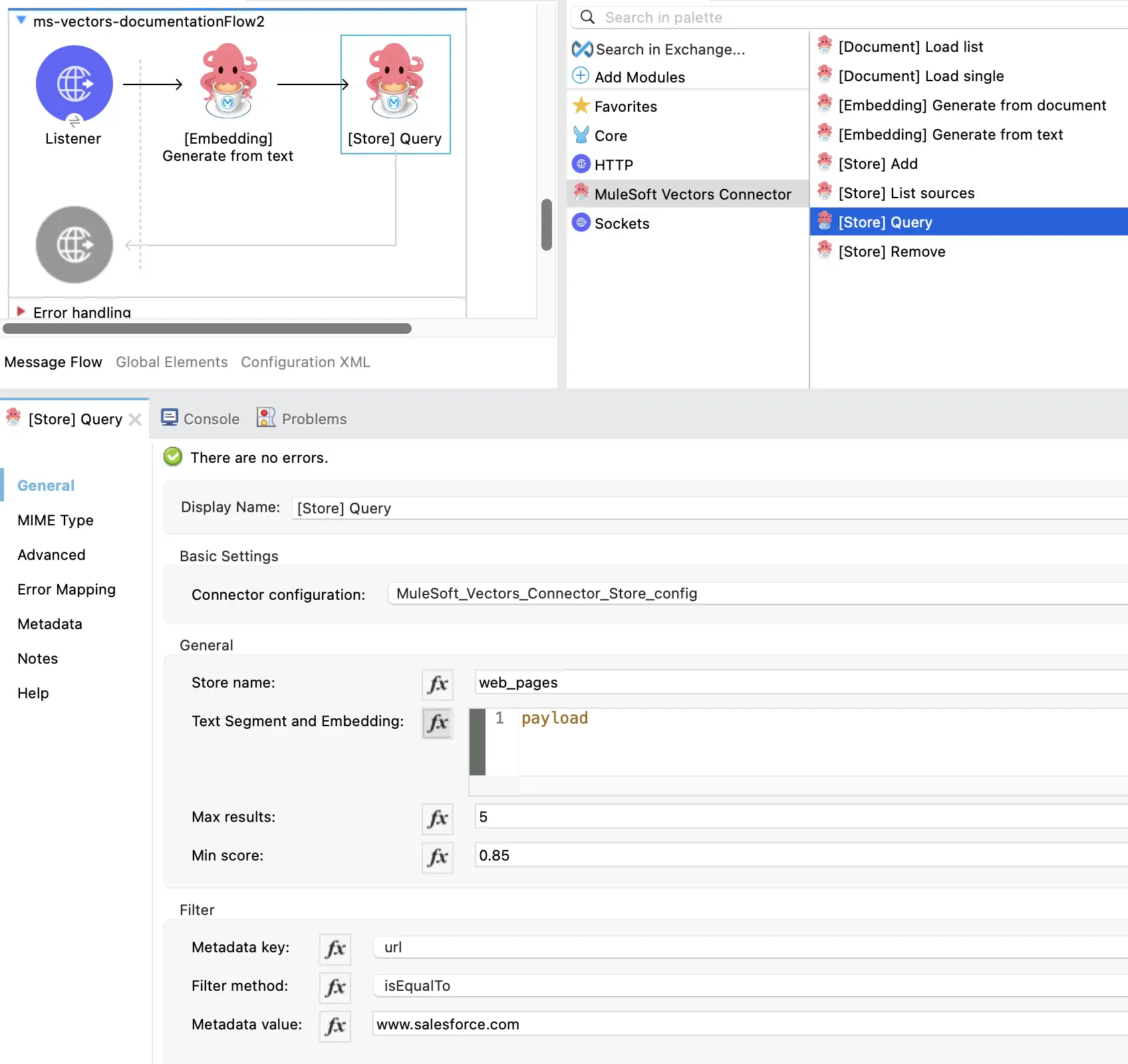
Store Remove
The Remove operation remove all entries from a collection based on a filter.
